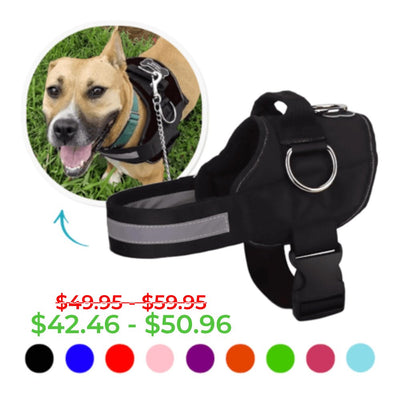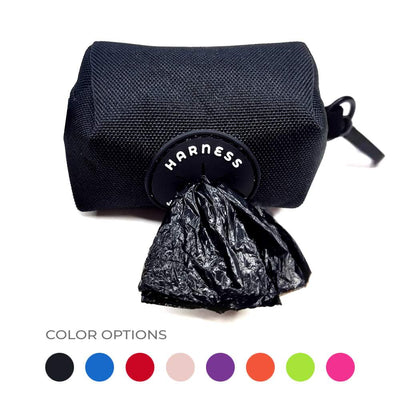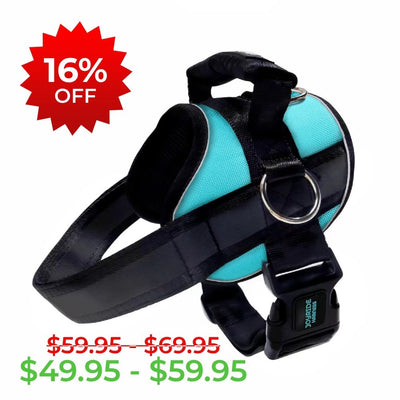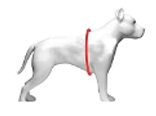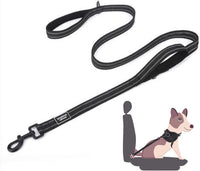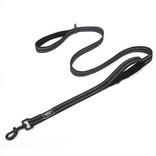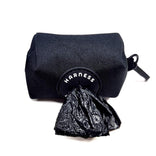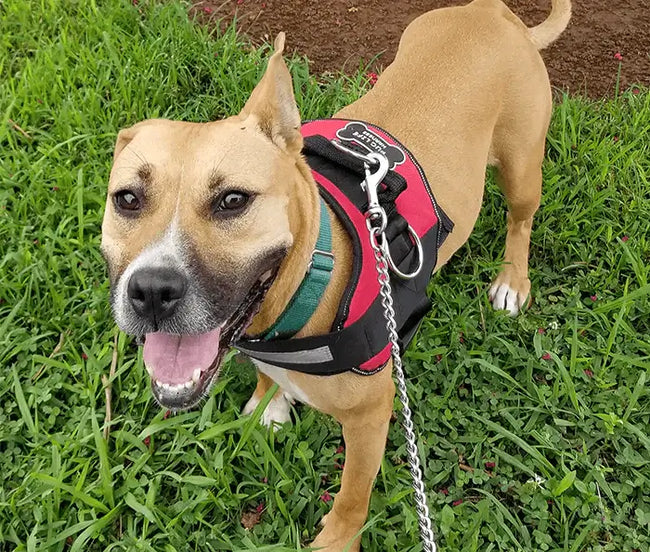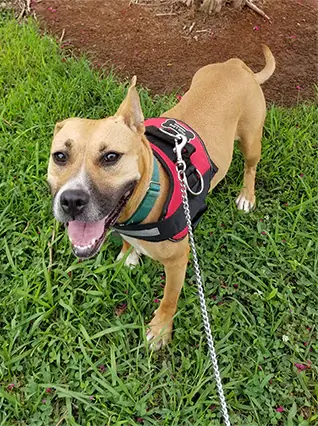Dog Care 101: Healthcare, Vaccinations, and Preventatives

Welcoming a furry friend into your home is like adding a new family member, one that greets you with unmatched enthusiasm and love. As a dog owner, you are responsible for more than providing shelter and food; you also need to consider the overall health and well-being of your beloved canine companion.
One of the biggest considerations in providing the best dog care possible is comprehensive dog healthcare. To keep your pup happy and healthy, you’ll want to find a great veterinarian and stay up-to-date on checkups, vaccinations, and preventative medications. In this blog, we’ll cover some of the basic tenets of dog care. Because in addition to ensuring proper nutrition and good grooming habits, you want to ensure your best friend stays healthy.
Annual Exams
Annual exams are a cornerstone of responsible dog care. These check-ups allow veterinarians to assess your dog's overall health and identify any potential issues before they become serious problems. Regular visits to the vet can help maintain optimal dog health and ensure a long, happy life for your pet. A proactive approach to dog healthcare can help in the early detection of potential issues, ensuring that your dog receives timely intervention if necessary.
What to Expect During an Annual Exam
During these annual exams, veterinarians conduct a thorough assessment of your dog's overall health. Initially, they might inquire about your dog's daily habits, diet, exercise routine, and any behavioral changes you may have noticed. This discussion is followed by a physical examination where the vet checks various aspects including:
- Skin and Coat: Evaluating the condition of the skin and coat can provide insights into potential allergies or infections.
- Eyes and Ears: A check to identify any signs of infections, inflammations, or cataracts.
- Teeth and Gums: Dental check-ups to prevent issues like gum disease and tooth decay.
- Weight: Monitoring your dog's weight to prevent obesity, which can lead to other health issues.
- Heart and Lungs: Listening to the heart and lungs to detect any irregularities or signs of disease.
- Vital Organs: An examination of other vital organs to ensure they are functioning correctly.
To make the most of these visits, it's beneficial to come prepared. Bring along any previous medical records and be ready to discuss your dog's health, lifestyle, and habits. It's also advisable to note down any questions or concerns you may have, to ensure you can address them during the visit. Remember, these annual exams are a collaborative effort between you and the vet to secure the best possible dog healthcare for your beloved pet.

Vaccinations
When you bring your dog in for a veterinary exam, it might be time for vaccinations, especially if it’s a young puppy. These medical interventions are not just a safeguard against various diseases but a shield that protects your furry friend throughout their life. Vaccinations play a pivotal role in promoting robust dog health, helping to build a strong immune system that can fend off infections and illnesses.
In the initial stages of a puppy's life, they receive antibodies from their mother's milk, which offers them some protection against infections. However, as they grow, it becomes necessary to introduce vaccinations to continue this protection.
Common Vaccines for Dogs
When it comes to vaccinations for dogs, there are two general categories: vaccines that are recommended to all pets and vaccines that are recommended based on a pet's unique medical history and lifestyle.
Core Vaccines: These are the essential vaccines recommended for all dogs, irrespective of their lifestyle or location. They include vaccinations against diseases like rabies, distemper, parvovirus, and adenovirus.
Non-Core Vaccines: These vaccines are administered based on the dog's exposure risk. They might include vaccinations against diseases like Bordetella, leptospirosis, and Lyme disease, among others.
Recommended Vaccine Schedule
When your dog gets vaccinated will depend on their age and which vaccines you and your vet decide are appropriate. Here is a recommended vaccine schedule for most dogs and puppies:
For Puppies
- 6-8 weeks: Start with the first dose of core vaccines except for the rabies vaccine.
- 10-12 weeks: Administer the second dose of core vaccines along with any non-core vaccines deemed necessary.
- 16-18 weeks: The third dose of core vaccines is given, including the rabies vaccine.
- 12-16 months: Boosters for core and non-core vaccines as recommended by the vet.
For Adult Dogs
- Every 1-3 years: Adult dogs should receive booster shots for core vaccines. The frequency depends on the type of vaccine and the dog's health status.
- As recommended by the vet: Non-core vaccines are administered based on the dog's lifestyle and potential exposure to specific diseases.
Remember, the vaccination schedule might vary based on various factors including the dog's health condition, geographical location, and the vet's advice. Always consult with your vet to tailor a vaccination plan that suits your dog's individual needs, ensuring a happy and healthy life as an integral part of your family.

Preventatives
In addition to vaccinations, your vet may recommend other preventative medications to keep your dog happy and healthy. Preventatives are products that we can give or administer that will prevent disease down the road. Some of the most common preventatives safeguard your dog against bugs and parasites.
Heartworm Prevention
Heartworm is a severe and potentially fatal disease primarily transmitted through mosquito bites. The heartworm larvae enter the dog's body through the bite and gradually migrate to the heart and lungs, where they grow into adult worms. These worms can cause significant damage to the heart and lungs, leading to heart failure and other complications.
To prevent this, a regular regimen of heartworm preventatives is recommended. These medications are available in various forms, including oral tablets, topical solutions, and injections. It's essential to consult your vet to choose the best preventative plan for your dog, incorporating it into your regular dog healthcare routine.
Flea and Tick Prevention
Fleas and ticks are not just a nuisance; they can transmit diseases and cause severe discomfort for your dog. Flea infestations can lead to skin irritations, infections, and even anemia in severe cases. Ticks can transmit diseases like Lyme disease, which can have long-term health implications.
Preventative measures include regular use of flea and tick control products, which come in various forms like collars, shampoos, sprays, and topical solutions. Additionally, maintaining a clean environment and regular grooming can help keep these pests at bay. Collaborate with your vet to establish a flea and tick prevention strategy that suits your dog's lifestyle and environment.
Keep Your Dog Healthy, Happy, and Safe With Joyride
At Joyride Harness, we are committed to helping you keep your dogs happy, healthy, and safe, whether with a secure no-pull harness or dog care tips on our blog. We want all dog parents–whether brand new or with decades of experience–to feel confident that they are providing their fur baby with the best life possible!
The path of dog care is paved with love, vigilance, and a deep-seated commitment to your dog's health and happiness. Together, with the help of our Paw it Forward campaign, we can help shape a world where every dog enjoys the love and care they truly deserve.
Please remember that while we want what’s best for you and your dog, this guide is not a substitute for the advice and treatment a professional Vet can provide. If you have any questions directly related to the healthcare of your dog, we always recommend speaking with a professional.


